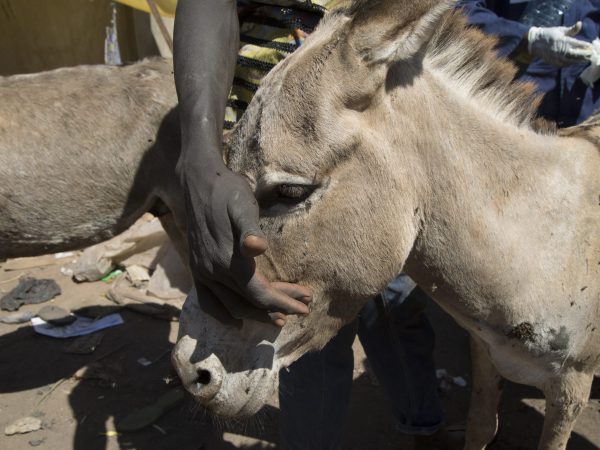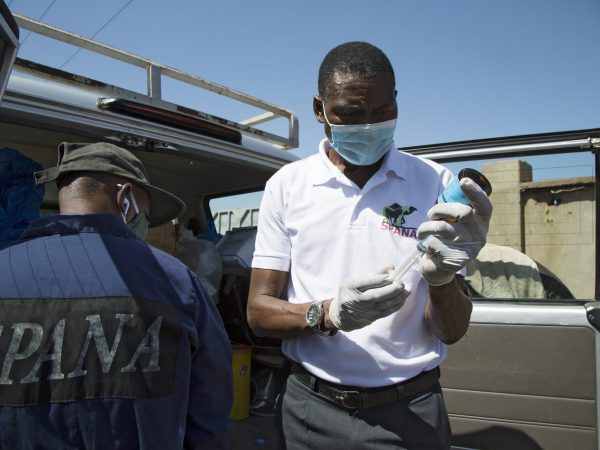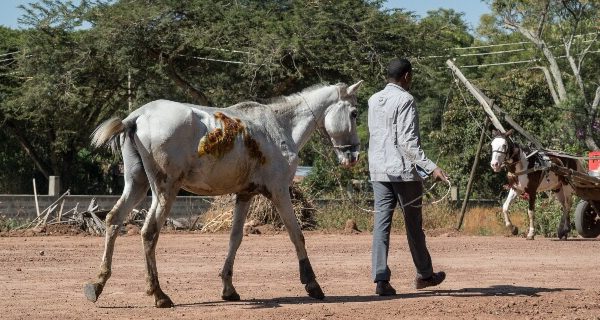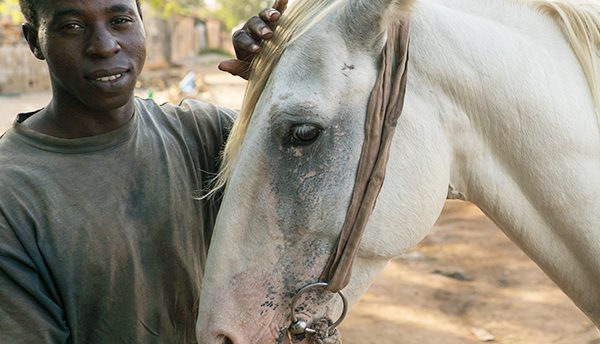Diarra’s brush with tetanus
Diarra had suffered painful injuries and desperately needed medical intervention. Find out how SPANA vets treated her wounds before further complications could develop.

Diarra is one of the many donkeys who works tirelessly at the vast Badalabougou rubbish dump in Mali’s capital, Bamako. Every morning, seven days a week, five-year-old Diarra pulls cartloads laden with rubbish back and forth between the city and the dump. Thanks to Diarra, her young owner, Sekou, is able to earn a small income as a refuse collector.
In this tough job, Diarra is at constant risk of injury as she makes her way carefully through the huge piles of debris. The waste contains hazardous materials, such as sharp scraps of metal and shards of glass, which can cause painful cuts and open wounds.
As a result, one of the greatest dangers working animals face is from tetanus. Tetanus is a bacterial infection that thrives in dirty environments like rubbish dumps and can enter the body through even the smallest graze or cut. Without treatment, tetanus can cause severe muscle spasms, leading to paralysis, and can often be fatal for working animals.
That’s why Sekou was extremely concerned when he noticed Diarra had developed some wounds on her back and around her tail, the result of a poorly fitted harness.

Thankfully, SPANA’s mobile veterinary clinic visits the rubbish dump regularly, so Sekou wasted no time in taking Diarra for urgent help.
SPANA vets carefully examined Diarra’s wounds and immediately started treatment. They first disinfected each wound to make sure they were all clean, then gave Diarra an antibiotic injection to ward off possible infection, and a painkiller injection to soothe any discomfort. Crucially, they administered a preventative vaccination to protect her against tetanus. The team also provided Sekou with comfortable padding for Diarra’s harness, a simple solution to reduce injuries and wounds in future – and make Diarra’s working life more comfortable.
Sekou was delighted that our vets were able to treat Diarra. He was also extremely grateful to receive their advice on how to prevent wounds that could lead to serious complications like tetanus. He said: ‘SPANA takes care of the animals. I am able to eat because of Diarra.’
Thanks to a simple vaccination, Diarra is now protected from the deadly threat of tetanus. SPANA has vaccinated thousands of working animals against this awful disease and, with your help, we can continue to prevent working animals from suffering the agony caused by tetanus through lifesaving vaccines.


